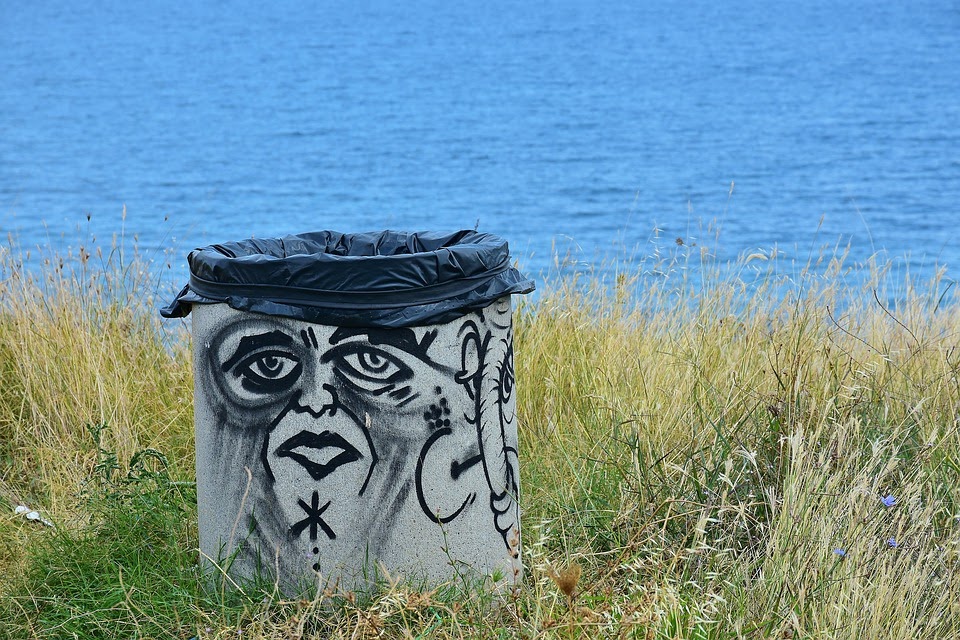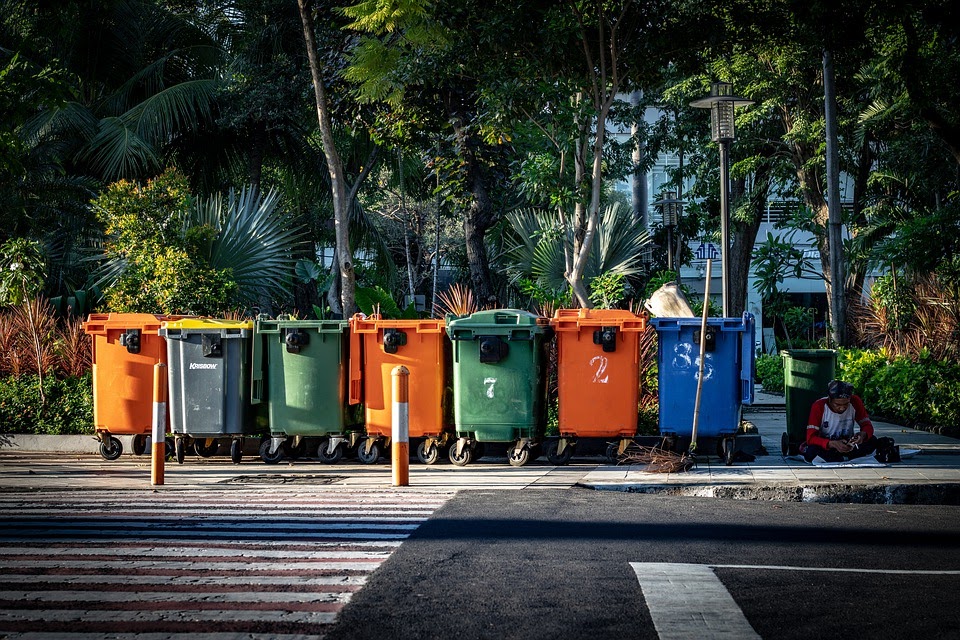As you wander your way through dispensaries in 2019, you may notice your favorite cannabis products have been upgraded with beautifully branded packaging. Yet, with more packaging comes more responsibility to recycle– an issue that’s growing increasingly necessary within the cannabis industry. But it’s trickier than just tossing your toking remnants into a blue bin.

Strict laws in recreational states dictate the rules companies must abide by to stay compliant, ranging from regulations on how cannabis needs to be packaged to how it must be distributed (and even ‘destroyed’). For example, laws in both WA and CA require a long list of warnings to be displayed on the childproof-packaging in specific sized fonts, thus forcing the packaging to grow in size. In addition, both states have strict laws for the disposal of used cannabis products as well.
While the majority of these laws focus on creating a ‘safe supply chain’ and diversion from the black market, they sadly are not focused on the consequences of tossing millions of plastic tubes and bags into landfills each year. To make matters worse, many consumers mistakenly try to recycle these materials. As Heather Trim, executive director of Zero Waste Washington puts it in The Washington Post, “We have all these materials coming online that are not recyclable, and they’re causing contamination in the recycling system. People assume that they are recyclable and feel that they should be recyclable. But they are not.”
One solution for the problem could be implementing more sustainable packaging. However, that also means higher costs, which eventually trickle down to the consumer. In another interview conducted by The Washington Post, Joy hollingsworth the co-owner of The Hollingsworth Cannabis Co. explains how even after her sales of around 40 pounds of cannabis per month, the company still cannot afford more sustainable packaging. While the company already uses solar power and composts its plant waste on site, she states they have no solution for the pending packaging issue. “I am sitting here looking at all the packaging that goes into weed. Put a pound of weed into a jar, break it down into one-gram units — that’s 454 single jars, tubes, bags,” Hollingsworth continues, “I don’t think there is any true way around this problem, the way the laws were produced in Washington”.

But Washington and California aren’t the only ones struggling with the consequences and costs of strict cannabis regulations. Colorado, Oregon, and even Canada face the same issues; and the problem doesn’t stop at packaging.
Garrett Rodewald, CEO of Gaiaca, a CA cannabis waste management company, explains to Waste360 that in addition to the waste from collectives and distributors (which includes expired goods ranging from raw cannabis flower and oils to edible food products in various types of packaging), there is also the waste from the manufacturers and laboratories that includes post-extracted plant material, chemical waste, and cannabis product that has undergone extraction and distillation with hydrocarbon and alcohol solvents. Waste that now becomes a mixture of hazardous and non-hazardous. He estimates that for every pound of finished cultivated product, there is at least one pound of waste generated, not including the manufacturing waste.
The trickiest part of it all? As Rodewald further explains, “under the existing regulations, cannabis waste is currently considered a medical byproduct. This excludes most general trash companies from being able to handle it”. Which is why companies like Gaiaca have stepped in to help.
And some states are taking it even further. In an effort to minimize the amount of waste destined for landfills, Colorado’s Senate passed a bill that allows the recycling of “fibrous” cannabis waste with the purpose of making “industrial fiber products”. As expressed by Mariwaste, a CO cannabis waste recycling company, “While the specific regulations for how this will be handled have yet to be ironed out, we can rest easier knowing that the state is addressing an ecological issue that will be felt across other states where cannabis is legal. In time, we should see more paper, composites, insulation, compost, and other products made from cannabis waste in the market.” Can we get a hallelujah?!

In the meantime, ask your local dispensaries if they have any recycling programs already in place, and continue to do your best to consume cannabis consciously.
For more alternatives on cutting down on plastic, check out https://www.themostchic.com/less-plastic/.
- Young, K. M. (2018, August 14). Garbage from Washington state’s booming pot industry clogs gutters, sewers and landfills. https://www.washingtonpost.com…
- McMullen, C. (2017, October 20). California Waste Disposal Company Makes its Mark Servicing the Cannabis Industry. https://www.waste360.com/speci…
- Mariwaste.com. (2018, May 29). Colorado Cannabis Waste Recycling. https://mariwaste.com/f/colora…



